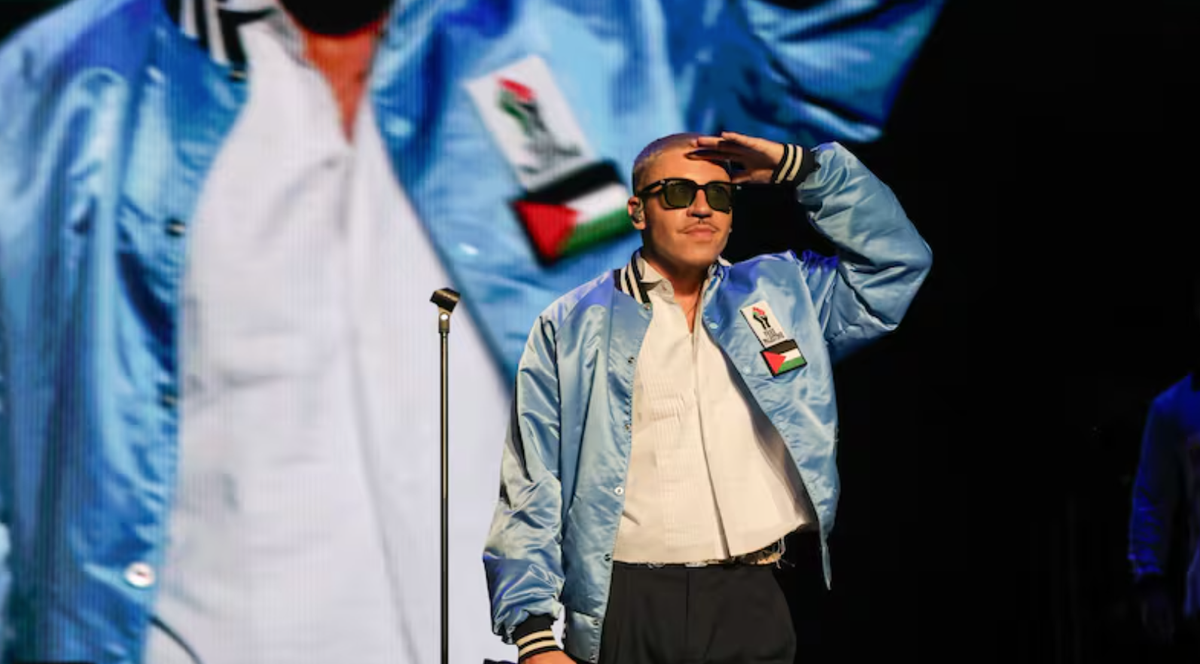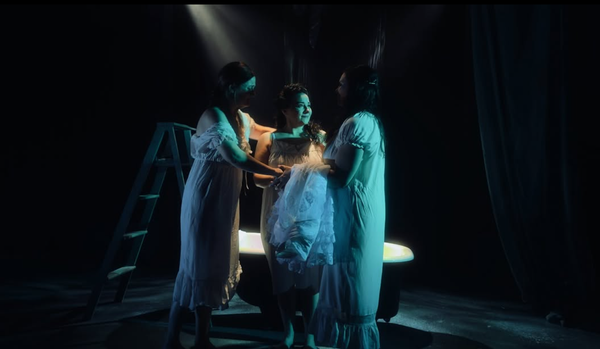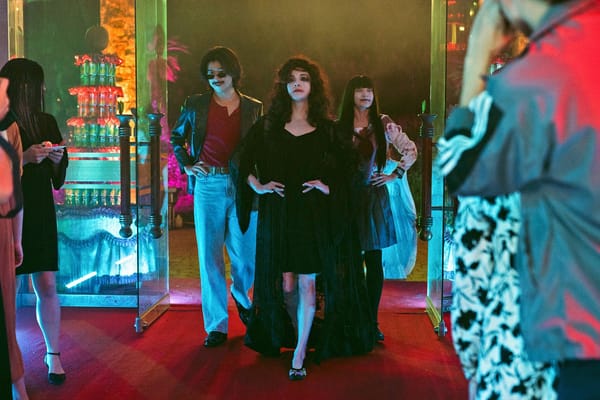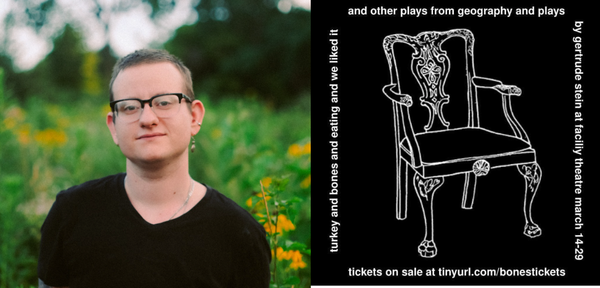Good For You, Macklemore

Whether it’s the Academy of Motion Picture Arts and Sciences’ abdication of duty regarding filmmaker (and recent Oscar winner) Hamdan Ballal after he was attacked by settlers in Masafer Yatta or billionaire producer Marc Platt flying cross-country to dress Rachel Zegler down for tweeting “Free Palestine”, corporate monoculture is trying to shut down all solidarity with Palestine. Artists, anxious about corporate objections to their dissent, are forced to appear apolitical, lest they anger conservative suits and lose work opportunities. It isn’t a stretch to say that the American entertainment industry has failed Palestine.
But then there’s Macklemore. Yes, Thrift Shop Macklemore!
The Seattle-native rapper and golf-clothing magnate, born Ben Haggerty, has recently re-emerged, seemingly out of nowhere, as one of the few celebrities who is willing to publicly speak up for Palestine. It’s impressive, and a little surprising, that Macklemore has shifted in the public eye from a laughing-stock woke white rapper to a prominent voice in the Palestinian solidarity movement, an unlikely voice of dissent in a media landscape that begs audiences to avert their eyes.
Despite the incongruity of the “Can’t Hold Us” rapper standing for Palestinian self-determination, Macklemore’s support of progressive causes is nothing new. “Same Love”, from his 2012 debut THE HEIST, was a delicate ballad about queer rights, written in support of the campaign for gay marriage in Macklemore’s native Washington. It also become a bit of a meme, as the opening lyrics of “When I was in the third grade/I thought I was gay/’Cause I could draw, my uncle was, and I kept my room straight” come off as flippant, if not totally self-involved.
The rest of the song is a deeply earnest stand against homophobia and a declaration of solidarity with the queer community, but the song came to represent Macklemore’s whole personality. Macklemore entered the Trump era with a verse on a remix of YG’s 2016 single “FDT (Fuck Donald Trump)”, which featured chestnuts like “Your politics are like a Starburst pack/Nobody fucks with the orange one”. Macklemore’s stabs at political involvement have historically been seen as fumbles at wokeness, not cohesive statements.
So, how did Macklemore, saddled with a reputation as a corny white dude, end up entrenched in the American Palestinian solidarity movement?
In a recent interview on DEMOCRACY NOW! to promote THE ENCAMPMENTS, a documentary on Columbia University’s student encampment that he has a producer credit on, Macklemore told Amy Goodman about his political education regarding Palestine. “The nature of being on the road is that you have a lot of time in the day,” he said, describing his initial reaction to the events of October 7th, 2023. “I did not know about the open-air prison that was Gaza… I started to learn. And once I started to learn… something happened in me. There was an awakening and a remembering of what actually matters in this world.”
After seeing singer Kehlani post about Palestine, he decided to take a public stance in solidarity, which soon led to the release of “Hind’s Hall”, his portrait of the student encampment at Columbia. The song’s title is a reference to the movement’s renaming of Columbia’s Hamilton Hall after Hind Rajab, a 6 year-old Gazan girl who was killed by Israeli Ground Forces with an American-made bomb. “Hind’s Hall 2”, a follow-up, takes on the Palestinian solidarity movement more broadly and features contributions from Gazan rapper MC Abdul and Palestinian-American singer Anees.
The release of these songs, as well as his endorsement of the documentary ISRAELISM and his producer credit on THE ENCAMPMENTS has drastically transformed Macklemore’s reputation. No longer is he the proto-Conner4Real, missing the mark politically. He is now a bona-fide voice of Palestinian solidarity.
How is he getting away with it? Many of his contemporaries, even the more politically-minded ones, have steered clear of broaching the topic of Palestine in their music. The closest that Kendrick Lamar, one of the greatest political rappers of our time, came to addressing Palestine was standing near an unauthorized Palestinian flag during his Super Bowl halftime show.
Unlike some of his contemporaries, however, Macklemore is a fully independent artist. Releasing his music through his own label, Bendo, means that he can circumvent the input of any record label figures who may object to his advocacy. Beyond the historic reticence of the corporate class to get involved with Palestine, the multi-national conglomerates that run major record labels have direct ties to the defense industry, as Godspeed You! Black Emperor illustrated in the album art for their 2002 album YANQUI U.X.O. Speaking out against any war in the specific is bad for business these days, as the example of the (then-Dixie) Chicks at the outset of the Iraq War taught America.
In the DEMOCRACY NOW! interview, Macklemore speaks on the freedom that releasing music independently offers: “I’m done playing the game of capitalism and ‘let me walk the straight and narrow so I don’t offend this person and that person’.” He continues, “I am not tied to any record label. I don’t care about a brand deal. I don’t care. I’ve been so lucky in my career that I’m financially stable enough... to risk that’s going to actually jeopardize, like, putting food on my table.”
It’s clear that Macklemore is aware of his unique circumstance as a public figure with autonomy over his output, and he is using that privilege to take a principled stand on the issue of Palestine*. At the same time, who’s to say that, if Eminem or Kendrick Lamar were no longer on major labels, they would speak up? There are absolutely no guarantees if celebrities can, or should, speak out for a genocide.
But with Macklemore, we have the case of a celebrity who is expressing genuine solidarity with Palestine and spotlighting Palestinian artists, a move that has eclipsed his early-aughts reputation. Whether or not you place any value in celebrity culture, that’s admirable, and a far cry from “Thrift Shop”.
==
*By no means, do I want to make it sound like Macklemore is the only prominent independent artist speaking out for Palestine. Kneecap, Mykki Blanco, and Wednesday have been outspoken in their solidarity with Palestine, and Adrienne Lenker has raised money for the Palestinian Children's Relief Fund. The Musicians for Palestine and Artists4Ceasefire lists are exhaustive in cataloging support, and Pitchfork's list of Palestine fundraiser compilations is a great resource.




